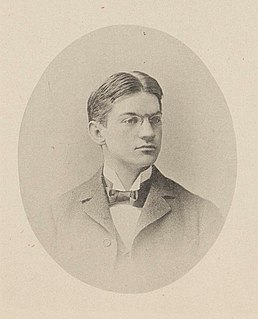A Quote by Dalai Lama
Happiness is determined more by one's state of mind than by external events.
Quote Topics
Related Quotes
If creative work protects a man against mental illness, it is small wonder that he pursues it with avidity; and even if the state of mind he is seeking to avoid is no more than a mild state of depression or apathy, this still constitutes a cogent reason for engaging in creative work even when it brings no obvious external benefit in its train.
We know that we are happy when our mind is peaceful, and unhappy when it is not. It is therefore clear that our happiness depends upon our having a peaceful mind and not on good external conditions. Even if our external conditions are poor, if we maintain a peaceful mind all the time we shall always be happy.
A man of fashion does not like to be reckoned poor, no more than he likes to be reckoned unhappy. We none of us endeavor to be happy, Sir, but merely to be thought so; and for my part, I had rather be in a state of misery, and envied for my supposed happiness, than in a state of happiness, and pitied for my supposed misery.
Happiness, whether consisting in pleasure or virtue, or both, is more often found with those who are highly cultivated in their minds and in their character, and have only a moderate share of external goods, than among those who possess external goods to a useless extent but are deficient in higher qualities.
To Epictetus, all external events are determined by fate, and are thus beyond our control, but we can accept whatever happens calmly and dispassionately. Individuals, however, are responsible for their own actions which they can examine and control through rigorous self-discipline. Suffering arises from trying to control what is uncontrollable, or from neglecting what is within our power. As part of the universal city that is the universe, human beings have a duty of care to all fellow humans. The person who followed these precepts would achieve happiness.





































